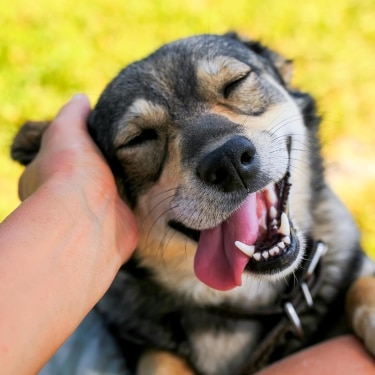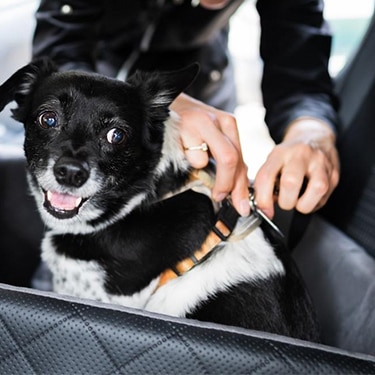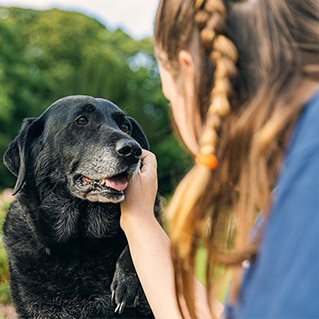Standing between 17 1/2 to 18 1/2 inches (females) or 18 1/2 to 19 1/2 inches (males), they fall into the medium category of size for dogs.
All schnauzers in Germany have their ears cropped; however, the American Schnauzer Club allows dogs to be shown with both cropped and natural ears. A docked tail is also typical.
The colors for a standard schnauzer can be pepper and salt or pure black. The typical pepper and salt color of the topcoat results from the combination of black and white hairs and white hairs banded with black. Acceptable are all shades of pepper and salt and dark iron gray to silver gray. Ideally, pepper and salt standard schnauzers have a gray undercoat, but a tan or fawn undercoat is not to be penalized. It is desirable for the dog to have a darker facial mask that harmonizes with the particular shade of coat color.
Also, in pepper and salt dogs, the pepper and salt mixture may fade out to light gray or silver white in the eyebrows, whiskers, cheeks, and leg furnishings, across the chest, inside the legs, and under the tail, throat, and body. Ideally, the black standard schnauzer should be a true rich color, free from any fading or discoloration or any admixture of gray or tan hairs.
The undercoat should also be solid black. However, increased age or continued exposure to the sun may cause a certain amount of fading and burning. A small white smudge on the chest is not a fault. Loss of color as a result of scars from cuts and bites is not a fault.
The standard schnauzer combines unusual intelligence and reliability with a high-spirited temperament. In this country and in Germany, these dogs are used primarily as personal guards and companions. Their devotion and bravery together with their intelligence makes them suitable in this role. They are watchful, courageous, easily trained, and loyal to family.
Standard schnauzers need a fair amount of exercise. They need walks and playtime. If you do not give them enough exercise, they will exercise themselves! Running through the house with toys, chasing the kids, getting in the way, and basically being a pest is the way standard schnauzers will display their boredom and restlessness. Being family-oriented, they would prefer to be with their family rather than isolated in a kennel or in the backyard.
Early socialization and extensive training are necessary for a standard schnauzer to turn into the type of family pet that you would be proud to own. The high level of intelligence can be a blessing or a curse in disguise. While the standard schnauzer puppy learns quickly, he will also use that intelligence to figure out clever ways to avoid obeying his guardian's commands. These dogs often think they have a better way to do things.
The look of the standard schnauzer is not a natural look. One must be prepared to spend time stripping or clipping, trimming or scissoring the coat, or using the services of a professional groomer. Schnauzers do shed. Brushing, bathing and grooming are necessary for this dog's overall health.
This is a German breed of great antiquity, appearing in paintings of Durer and Rembrandt. In Mechlinburg a statue dating back to the 14th century of a hunter with a schnauzer crouching at his feet stands in the market place. All the schnauzers had their origins in the neighboring kingdoms of Bavaria and Wurtemmburg.
Standard schnauzers are reported to be a cross of the gray wolf spitz and, later, the black German poodle with the wire-haired pinscher stock.
Originally considered a terrier in the United States because of the dog's reputation as an excellent ratter, the schnauzer was always classed as a working dog in Germany because of his vocation as a yard dog, ratter and guard. It is believed that over 90 percent of the dogs used to guard the farmer's carts brought to market before World War I were of strong schnauzer blood in Germany.
Standard schnauzers were first exhibited in Germany as wire-haired pinschers in 1879. A standard for the breed was published in 1880, and the breed made rapid progress as a show dog. They have been widely known in the states only since World War I.
Adopt a pet. Change a life.
Are you prepared to adopt a pet? Use these tools to make sure you are ready for the commitment.
Adopt a pet. Change a life.
Are you prepared to adopt a pet? Use these tools to make sure you are ready for the commitment.























